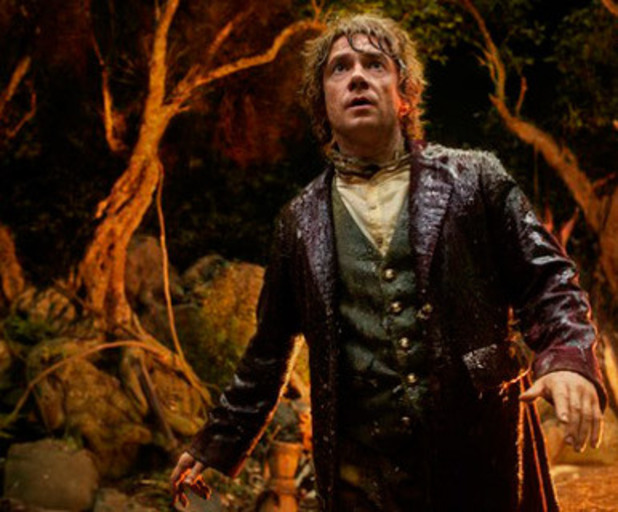A Review of The Hobbit: An Unexpected Journey, Directed by Peter Jackson
By KENDRICK KUO
 After hearing the good reviews, including our very own Paul Miller’s take on the film, I decided to watch The Hobbit on New Year’s Day. There are many ways to review a film adaptation of a book—fidelity to the book’s plot, how well the characters make it to the screen, or other criteria. I will simply say read Paul Miller’s review since I agree with everything he has said about Peter Jackson’s work.
After hearing the good reviews, including our very own Paul Miller’s take on the film, I decided to watch The Hobbit on New Year’s Day. There are many ways to review a film adaptation of a book—fidelity to the book’s plot, how well the characters make it to the screen, or other criteria. I will simply say read Paul Miller’s review since I agree with everything he has said about Peter Jackson’s work.
What I would like to add is the stark contrast between the strong and the weak displayed in The Hobbit. My thoughts will be limited to what’s been done in the film, since I haven’t read the book since middle school. Much like the role Frodo and Sam play in The Lord of the Rings, Bilbo Baggins is the meek character who rises to the occasion and outshines the powerful and wealthy. Bilbo travels with a dozen or so dwarves, one of whom is a former king and the others seem adept at battle. Bilbo is neither royalty nor a warrior. Bilbo visits Rivendell, where there are immortal elves who are incredibly intelligent. Nor is Bilbo a match for the trolls, orcs, and goblins they meet along the way.
Yet these failings—or what would be considered failings by the brutal world Bilbo finds himself in—are in fact what make Bilbo a hero of biblical proportions. Gandalf says it well when, speaking with Galadriel, he pinpoints Saruman’s Nietzchean worldview where power is the fundamental principle of life and juxtaposes this perspective with a moral one, whereby small acts of goodness keep evil at bay. He tells Galadriel that “Saruman believes it is only great power that can hold evil in check, but that is not what I have found. I found it is the small everyday deeds of ordinary folk that keep the darkness at bay… small acts of kindness and love.”
Gandalf’s confidence in Bilbo is similar to God’s in us, insofar as he “has chosen the foolish things of the world to shame the wise…and has chosen the weak things of the world to shame the strong” (1 Cor. 1:27). This is also the case when it came to Frodo decades later. There are many biblical currents running through Tolkien’s work, but the one that stands out most to me is his celebration of the foolish and weak to shame the wise and strong. Think of when the dwarves’ doubted Bilbo’s utility or when Boromir doubted Frodo’s strength to carry the ring and fulfill the mission.
Bilbo’s greatness does not come from the size of his body or his mind, but the size of his heart. While Bilbo hides from the goblins and is often found running away from danger, Thorin Oakenshield is quick to draw his sword and meets the Pale Orc head on in the closing scenes of the film. Bilbo is clearly one of the meek. Yet Bilbo carries the day by saving Thorin from the executioner’s blade and in so doing saves the adventure.
Bilbo is an unlikely hero because he lacks the trappings of such an archetype. But this biblical principle of paradox rings true to our hearts, for Christ lacked the purple robes befitting of a king, a fortress befitting of a ruler, or the army befitting of a conqueror. He was naked, homeless, and eventually deserted. The meek will inherit the earth. The foolish will shame the wise. The weak will shame the strong. The last will be first. The death on a cross will defeat death.












